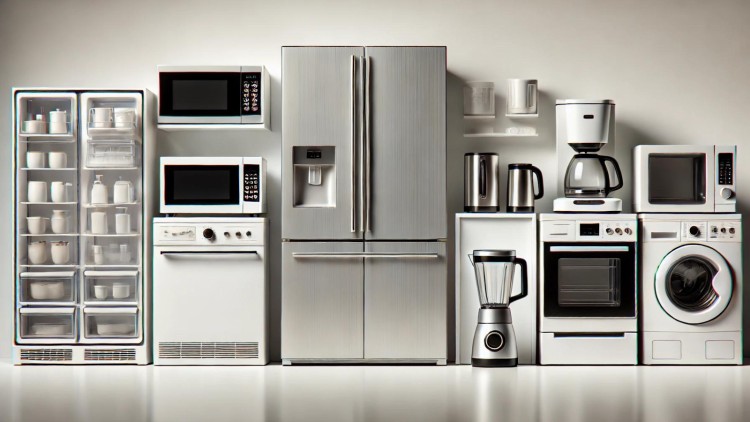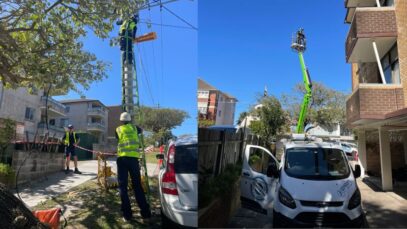
When it comes to household energy consumption, not all appliances are created equal. Some devices are more power-hungry than others, leading to higher electricity bills and a greater environmental impact. Understanding which appliances use the most power can help you make smarter decisions about usage and upgrades. Here’s a breakdown by room to help you identify the biggest energy consumers in your home.
Laundry Room: Hidden Energy Costs
Washing Machine
Modern washing machines are more energy-efficient than their predecessors, but they still consume a significant amount of power, especially during hot water cycles. Opting for cold water washes can cut down on energy use dramatically. Additionally, running full loads rather than half-empty ones ensures you get the most out of each cycle. High-efficiency washers are another great investment, as they use less water and energy while delivering the same cleaning power.
Clothes Dryer
Clothes dryers are among the top energy consumers in the laundry room. They use a lot of power to generate the heat necessary to dry clothes. Consider air-drying or using dryer balls to reduce drying time. If you must use the dryer, clean the lint filter regularly to improve efficiency, and consider using the moisture sensor setting, which stops the cycle when clothes are dry.
Kitchen: The Heart of Energy Use
Refrigerator and Freezer
Your fridge and freezer run 24/7, making them one of the biggest power consumers in your home. Regular maintenance, such as cleaning the coils and ensuring the door seals are tight, can improve efficiency. Placing your fridge away from heat sources like ovens and direct sunlight also helps reduce its workload. Upgrading to an energy-efficient model can significantly cut down on power consumption.
Oven and Stove
Cooking appliances, especially ovens, use a considerable amount of energy. Opting for smaller appliances like microwaves or toaster ovens for smaller meals can help save power. Using the right-sized pot on stove burners and covering pots while cooking can also enhance efficiency.
Dishwasher
While dishwashers can be energy-efficient, they still consume a notable amount of electricity, particularly during the heating and drying cycles. Running full loads and using the energy-saving mode can help reduce consumption. Skipping the heat-dry option and air-drying dishes can also save you significant energy.
For advanced electrical services, including complex installations, contact a Level 2 electrician in Sydney.
Entertainment: The Power Behind Leisure
Television
Modern flat-screen TVs, especially large ones, can use a lot of power, particularly when left on for extended periods. Consider turning off the TV when not in use and using energy-saving settings. Many TVs have a power-saving mode that adjusts the brightness of the screen to save energy. Additionally, turning off streaming devices when not in use can prevent unnecessary power drain.
Gaming Consoles and Computers
Gaming consoles and high-performance computers are significant power users. Ensure they are turned off or put into sleep mode when not in use to save energy. Enabling power-saving modes on these devices can further reduce consumption.
Lights: Illuminating Efficiency
Incandescent Bulbs
Incandescent bulbs are less efficient compared to LEDs and CFLs. They convert more energy into heat rather than light. Switching to LED bulbs can significantly reduce energy consumption. LEDs use up to 80% less energy and last much longer, making them a cost-effective choice in the long run. Consider installing dimmer switches and motion sensors to further control lighting usage.
Outdoor Lighting
Outdoor lights, especially those left on overnight, can add to your power bill. Consider using motion sensors, timers, or solar-powered options to cut down on energy use. Solar-powered lights are not only energy-efficient but also environmentally friendly, as they harness energy directly from the sun. Ensuring that outdoor lights are placed strategically can also reduce the need for excessive lighting.
To ensure your home’s electrical systems are running efficiently and safely, consider scheduling a consultation with a licensed Level 2 electrician in Alexandria, Rosebery, Rockdale, Randwick, or Pagewood your area.
The Biggest Power Hogs: Major Energy Consumers
Heating and Cooling Systems
Heating and cooling systems are the largest energy consumers in most households. Efficient use of these systems, regular maintenance, and investing in energy-efficient models can lead to substantial savings. Programmable thermostats allow you to set temperatures based on your schedule, ensuring that energy isn’t wasted when you’re not home. Sealing leaks in windows and doors and insulating your home can also improve your HVAC system’s efficiency.
Water Heater
Water heaters, especially older models, consume a lot of energy. Lowering the thermostat, using a timer, or upgrading to a tankless water heater can help reduce power use. Tankless water heaters provide hot water on demand, which can be more efficient than keeping a tank of water hot at all times. Insulating your water heater and pipes can also minimise heat loss and reduce energy consumption.
Pool Pumps
If you have a swimming pool, the pump can be a major power hog. Running the pump less frequently or investing in a more efficient model can help cut down on energy costs. Variable-speed pumps are more energy-efficient than single-speed pumps, as they can be adjusted to run at lower speeds for routine filtration and higher speeds for cleaning.
5 Tips for Reducing Your Energy Consumption
Reducing energy consumption not only lowers your electricity bills but also contributes to a more sustainable environment. Here are some detailed tips to help you cut down on your energy usage:
1. Upgrade to Energy-Efficient Appliances
Look for appliances with a high Energy Star rating. These appliances are designed to use less energy without compromising performance. Replacing old, inefficient appliances with newer, energy-saving models can make a significant difference in your overall energy consumption. For instance, an Energy Star-rated refrigerator can use up to 40% less energy than conventional models.
2. Regular Maintenance
Keeping appliances in good working order ensures they run efficiently and last longer. For example, regularly cleaning or replacing HVAC filters can improve system efficiency and reduce energy consumption. Similarly, ensuring your refrigerator coils are clean can help it run more efficiently.
3. Insulate Your Home
Proper insulation can significantly reduce the amount of energy required to heat and cool your home. Insulating your attic, walls, and floors helps maintain a consistent indoor temperature, reducing the load on your HVAC system. Additionally, sealing gaps and cracks around windows and doors can prevent drafts and further improve energy efficiency.
4. Use Energy-Efficient Lighting
Switching to LED lighting is one of the simplest ways to reduce energy consumption. LEDs use significantly less energy than incandescent bulbs and last much longer. For outdoor lighting, consider solar-powered lights, which use renewable energy and require no electricity.
5. Adopt Energy-Saving Habits
Simple habits like turning off lights when leaving a room, unplugging chargers when not in use, and using natural light during the day can collectively lead to substantial energy savings. Encouraging your family to be mindful of their energy use can also make a big difference.
For professional assistance with energy-saving upgrades and electrical services, don‘t hesitate to reach out. We offer a range of services from residential electrical solutions to energy-efficient upgrades, helping you reduce energy consumption and save on electricity bills.
Looking for expert electrical services and energy-efficient solutions? contact a qualified electrician in Wolli Creek, Eastlakes, Erskineville, Zetland, or Mascot.
Recent Posts
Follow Us
Our Services
SERVING THE EASTERN SUBURBS AND GREATER SYDNEY AREA FOR 52 YEARS
You can reach us for 24/7 emergency services and all electrical services in Sydney.







